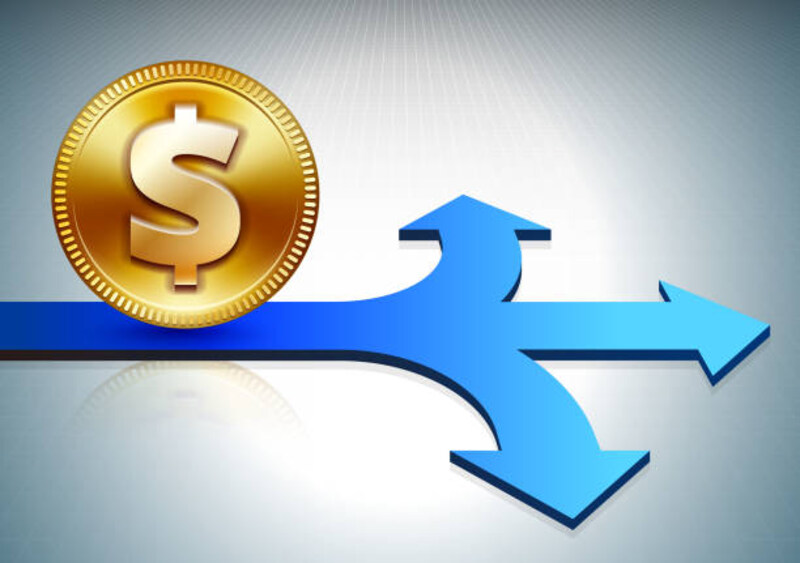Navigating Charge-Offs: Understanding, Impact, and How to Deal With Them.
Nov 22, 2023 By Triston Martin
A charge-off is a term used in the finance industry, particularly with credit card companies, when a creditor deems an outstanding debt as unlikely to be collected. This usually occurs after the debtor has been significantly delinquent on payments, often for 180 days or more. Common reasons for a charge-off include prolonged unemployment, serious illness, or financial mismanagement. It's important to understand that a charge-off does not alleviate the debtor's obligation to pay the debt, but rather, it is a mechanism used by creditors to clear uncollectable debts from their books.
Understanding the Impact
A charge-off can have significant implications on an individual's financial stability and credibility.
Effect on Credit Score
A charge-off is highly detrimental to your credit score. Credit scores are calculated using multiple factors, one of which is payment history. A charge-off signals to potential lenders that you have previously failed to fulfill payment obligations, thus lowering your score.
How it Appears on Credit Reports
On a credit report, a charge-off will appear as an outstanding debt that has been written off by the creditor. This negative mark can remain on your credit report for up to seven years from the date of the first missed payment that led to the charge-off. This long-term impact further emphasizes the importance of addressing charge-offs promptly and strategically.
Causes of Charge-Offs
Understanding the causes of charge-offs can help individuals steer clear of such financially damaging scenarios and maintain a healthy credit score.
Unpaid Debts
One of the primary causes of charge-offs is unpaid debts. When a borrower consistently fails to make payments on a loan or credit card, the lender may eventually determine that the debt is unlikely to be collected. This is typically after a significant period of delinquency, often 180 days or more.
Protracted Delinquency
Another common cause of charge-offs is protracted delinquency. This refers to a situation where a borrower has been consistently late on their payments over an extended period of time. Even if the borrower eventually pays their debt, the history of late payments can lead to a charge-off on their credit report.
Creditors' Perspective
From the creditor's perspective, charge-offs are a way to mitigate losses. When a borrower has been delinquent for a long period, the creditor may decide to write off the debt as a loss for tax purposes. However, this does not absolve the borrower of the obligation to pay the debt. Instead, the creditor may sell the debt to a collection agency, further complicating the borrower's financial situation.
Dealing with a Charge-Off
Navigating through charge-offs can be overwhelming. Here are some steps to manage and potentially rectify the situation:
Reviewing the Charge-Off Details
It is crucial to understand the details of the charge-off. This includes the amount of the debt, the creditor's information, and the date of the first delinquent payment. This information is typically provided in your credit report and can guide your subsequent steps.
Verifying the Debt
Once you have the details, it's important to verify the debt. You have the right to request the creditor to validate the debt, including providing documentation to prove the amount and their right to collect it. This step ensures that there are no errors in the charge-off details.
Negotiating with the Creditor
If the debt is valid, you can attempt to negotiate with the creditor. This could involve offering a lump-sum payment that is less than the full amount of the debt, or negotiating the removal of the charge-off from your credit report in exchange for payment.
Settling the Debt or Arranging a Payment Plan
If negotiation is not an option, or if it fails, consider settling the debt or arranging a payment plan. This usually involves making regular payments until the debt is fully paid off. Make sure to get any agreement in writing. Remember, even if the debt is settled for less than the full amount, the charge-off will still appear in your credit report.
Rebuilding Credit After a Charge-Off
Rebuilding your credit after a charge-off can be a challenging but necessary endeavor. This process often takes time, patience, and disciplined financial habits.
Securing New Lines of Credit
To start, open new lines of credit. While this may seem counterintuitive after a charge-off due to credit mismanagement, responsibly using credit demonstrates your ability to handle financial obligations. Apply for a secured credit card or a small personal loan to rebuild your credit profile.
Timely Payments and Responsible Financial Behavior
Rebuilding credit is best achieved through consistent on-time payments. Payment history greatly impacts your credit score, showcasing responsible financial behavior to future lenders. Keep credit utilization low by avoiding maxing out cards and paying balances in full each month.
Seeking Professional Assistance if Needed
If rebuilding your credit feels overwhelming, consider professional assistance. Credit repair agencies specialize in helping individuals improve their financial situations. Research organizations thoroughly before seeking their services. Reputable agencies offer transparent pricing and services, without promising instant fixes or guaranteed outcomes. Credit counseling and financial literacy courses are also valuable resources for credit recovery.
Legal Aspects and Statute of Limitations
Understanding the legal implications of a charge-off is crucial. When a debt is charged off, it doesn't absolve the obligation to repay it. Creditors can collect the outstanding debt through various legal methods, like suing the borrower or selling the debt to a collection agency. A successful lawsuit may result in wage garnishment, bank levies, or property liens. It's important to know your rights as a borrower under the Fair Debt Collection Practices Act (FDCPA), which protects against abusive practices by debt collectors.off.
Statute of Limitations on Debt Collection
The statute of limitations on debt collection refers to the timeframe in which a creditor can legally sue to collect the debt. This period varies by state and debt type, typically ranging from three to six years. It's important to note that the clock starts ticking from the date of the first missed payment, not the charge-off date. Once the statute of limitations has passed, the debt becomes "time-barred," and while collection efforts can continue, the debtor can use the expired statute as a defense against a lawsuit. However, certain actions, like making a payment or acknowledging the debt, can reset the clock. Seek advice from a legal professional when dealing with an old charge-off.
Tips for Avoiding Charge-Offs
Proactive measures can help you avoid getting into a situation where a charge-off occurs. Here are some strategies to consider:
Budgeting and Financial Planning
Creating and sticking to a budget is a fundamental step towards sound financial health. Understanding your income and expenses allows you to allocate funds effectively and prioritise your spending. Try to save a portion of your income each month, creating an emergency fund that can be used in times of unexpected financial hardship. Regular review and adjustment of your budget as your financial situation changes can also be beneficial.
Communication with Creditors
If you foresee difficulties in making timely payments, communicate with your creditors proactively. Many creditors have hardship programs in place for situations such as job loss, illness, or other financial crises. They may be willing to negotiate a modified payment plan, lower interest rate, or other accommodations.
Seeking Assistance in Times of Financial Hardship
Do not hesitate to seek help if you are struggling financially. Non-profit credit counselling agencies can provide valuable guidance, helping you to manage your debt and negotiate with creditors. Additionally, taking advantage of resources like financial literacy programs can equip you with the skills and knowledge to navigate through financial difficulties and avoid future charge-offs.
Conclusion:
A charge-off can greatly impact your credit and limit financial opportunities. However, you can mitigate this by settling the debt, rebuilding credit responsibly, and securing new lines of credit. Understand the legal implications, including the debt collection statute of limitations. To avoid a charge-off, maintain a budget, communicate with creditors, and seek professional help during financial hardship. Proactive financial management is key to maintaining good credit health and avoiding pitfalls. Manage obligations effectively, prepare for adversity, and foster open communication with creditors. Remember, financial health is a journey towards literacy and responsibility.

Susan Kelly Dec 08, 2023
Ethos Life Insurance
84450

Susan Kelly Feb 25, 2024
What Does Real Estate Agent Do
62978

Susan Kelly Jan 29, 2024
What Is A Multifamily Home
59989

Susan Kelly Jan 27, 2024
Top Mortgage Bankers In Kansas For 2023
75323

Susan Kelly Oct 14, 2023
What Credit Score Do I Need to Buy a House?
54440

Susan Kelly Jan 30, 2024
Ways to Grow Your Business
99321

Triston Martin Dec 01, 2023
Understanding the Importance of Insurance for Car Rentals
14828

Susan Kelly Nov 11, 2023
All About: What Is Contribution Margin?
35060